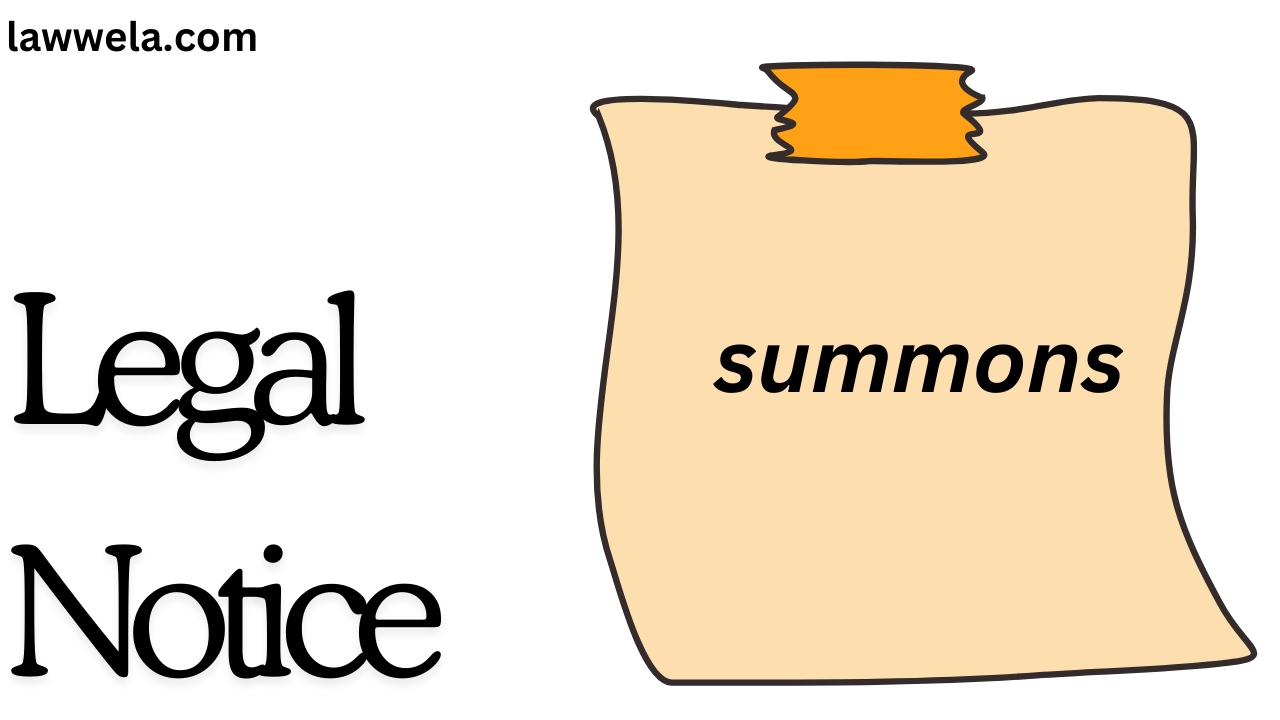Introduction
Summons are defined under the Code of Civil Procedure 1908. It is a legal document issued by a court to the defendant to notify them that there is a lawsuit filed against them and they have to appear in court on a specified date and time mentioned in summons.
Under section 2 (9) of the code of civil procedure, a summons means any document sent by a court to give notice to that person for his attendance in court.
Meaning
Summons means to inform the person that the other person has filed a complaint against him and they have to come to the court at a specified date. Summons can be served in civil and criminal cases both. Summons means not to put the person in jail. It is only a legal notice to inform the person that somebody has filed a case against him in the court for that he has to come in that jurisdiction of the court.
The essential element of summons
According to Order V Rule 1 following conditions for serving a summons under CPC
- It should be in written form
- It should be specified date, time, and place
- It should be attested by the seal of the court
- It should be signed by an authorized officer or presiding officer of the court
- It should be mentioned the nature of the offences
Types of summons
There are three types of summons served by the court
Civil summons
The civil summons is issued in civil cases that are given under CPC. It is issued to the defendant to appear in court because there is a complaint filed against him or her by the plaintiff.
It is generally issued in cases related to compensation, damages, loss, etc
Civil cases where summons issued
- breach of contract
- injunction order
- loss of goods
- suit for damages
Criminal summons
The criminal summons can be issued by the court to the defendant in different types of criminal cases like murder, notice to appear in the court, traffic summons, and to present some documents in the court. In criminal cases, the police have the right and power to send a summons to a minor. The charges of the case or the facts are mentioned in the summons.
Different types of summons under criminal cases
- Citation summons– is given under minor charges to the person to appear in the court. The police officer also issued this type of summons. For example, a police officer caught a person fighting in public and creating a nuisance to the public.
- Notice to appear- this type of summons is given to the person to appear in court for criminal charges. This summons is issued before the person is charged. For example, if the person is caught while doing miscellaneous work the police officer will provide him with a notice to appear in court. The charges will apply when the evidence is provided in court.
- Traffic summons- these types of summons are issued to a person when they break a traffic rule. The person will get a criminal summons and has to appear in court to respond to the charges imposed on him. For example, if a person is driving without a seatbelt or drunk and drive if the police officer catches that man the criminal summons is issued against him, and has to appear in court.
Administrative summons
The administrative authority issued these types of summons. These summonses are served by administrative courts like labour courts, tax courts, etc. Such courts have the power to serve summons to the person if it comes under the jurisdiction of the court.
Substituted service of summons
Where the court satisfied that
The defendant is intentionally not coming or avoiding the services. So they order to serve the summons by affixing the copy in the conspicuous place in the court, and in the house of the person.
Procedure to serve summons
Under section 62 of the Code of Criminal Procedure 1973 procedure to serve summons is defined. It can be served by a police officer, by a court officer, or by a public servant. In this section, it is also mentioned that it should be served summoned personally by giving them the duplicate copy and taking their sign on the original copy of the summon.
Summons by post
It can also be served by registered post; if the witness refuses to take the summons by postman then the postman is the evidence that the summons is served.
Summons to a person who is not found
Under section 64 if the person to whom the summon is issued cannot be found then the duplicate copy of the summons shall be served to the adult member of his family who will take the sign on the back of the original copy.
Summons in prison
It means when the summons is issued to a person who is in jail then the summons is served to the officer in charge of that police station.
Summons to a public officer
When the person is in public services, the summons will be served to the head of the department where the defendant is working.
Summons to a person outside of India
When a summon is issued to a person who is living outside of India and has no one in India, a summon is sent to him by postal services if there is postal communication between both the country.
Summons to an Army, Airman, or Navy Persons
In this case summons will served to the commanding officer on the behalf of defendant.
When Summons cannot be affected
In this when a person cannot be found to whom a summon is issued and section 64 fails to serve the summons then the serving agent affixes the summons on the conspicuous place of the person’s home. After that the serving agent will report to the court and the court will assume that the summons is duly served.
Conclusion
A summons is a legal notice served by the court to the person to whom the civil or criminal case has been filed in the court against him. In summons the date and place are specified and the person has to come in the court. It is very important to send the summons for the clarity of both sides so both will get justice.


1 thought on “What is summons under code of civil Procedure?”